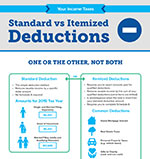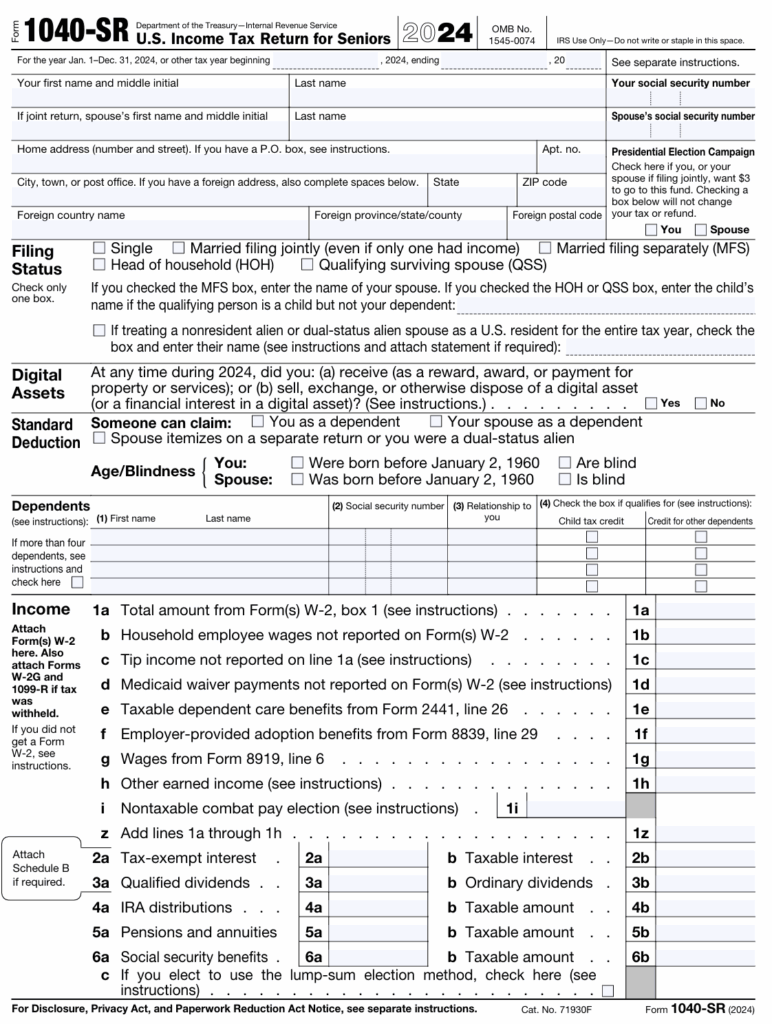Real-world examples of how the FEIE Standard Deduction influences taxable income
Wiki Article
Comprehending the Foreign Earned Income Exemption and Its Effect On Your Basic Deduction
The Foreign Earned Revenue Exclusion (FEIE) offers substantial benefits for migrants, enabling them to exclude a portion of their foreign-earned income from united state taxation. Nonetheless, claiming the FEIE can make complex one's tax situation, especially regarding the standard deduction. Recognizing this interaction is necessary for individuals living abroad. As migrants browse these complexities, they have to think about exactly how their selections influence their general tax obligation responsibility. What techniques can they employ to optimize their financial results?What Is the Foreign Earned Revenue Exclusion (FEIE)?
The Foreign Earned Revenue Exclusion (FEIE) acts as an important tax advantage for U.S. residents and resident aliens functioning abroad. This arrangement permits qualified individuals to exclude a significant section of their foreign-earned earnings from united state taxation, successfully decreasing their total tax concern. The FEIE intends to minimize the financial stress on expatriates and motivates Americans to seek work possibilities in international markets. The exclusion puts on salaries, salaries, and specialist costs gained while residing in an international country. The optimal exemption amount is readjusted each year for inflation, guaranteeing that it stays appropriate to present financial problems. By using the FEIE, expatriates can retain more of their revenue, promoting economic security while living overseas. On the whole, the FEIE plays an important role in shaping the economic landscape for Americans abroad, facilitating a smoother shift to worldwide work settings and promoting financial involvement on a worldwide scale.Qualification Requirements for the FEIE
Qualification for the Foreign Earned Revenue Exemption (FEIE) rests upon conference specific standards set by the Irs (IRS) Mostly, individuals should be U.S. citizens or resident aliens who earn earnings while living in a foreign nation. To qualify, they need to satisfy either main tests: the Physical Visibility Examination or the Authentic Home Test.The Physical Visibility Examination requires people to be literally present in a foreign country for at the very least 330 full days within a 12-month period - FEIE Standard Deduction. On the other hand, the Authentic Home Examination necessitates that individuals develop residency in an international country for an undisturbed duration that includes an entire tax obligation year
Additionally, the income needs to be stemmed from personal services carried out in the international nation. Fulfilling these requirements enables taxpayers to omit a significant portion of their foreign-earned earnings from united state taxes, thus reducing their overall tax responsibility.
Just how to Claim the FEIE

To begin the process, people need to gather documents that verify their foreign incomes, such as pay stubs, income tax return from foreign nations, and any kind of appropriate employment agreement. It is very important to assure all earnings claimed under the FEIE is gained from foreign resources and meets the needed limits.
In addition, taxpayers must take into consideration submitting due dates and any feasible expansions. Claiming the FEIE appropriately not only assists in reducing tax obligation responsibility but likewise guarantees conformity with internal revenue service regulations. Appropriate documents and adherence to guidelines are important for a successful case of the Foreign Earned Income Exclusion.
The Interaction In Between FEIE and Basic Deduction
The interaction between the Foreign Earned Income Exemption (FEIE) and the standard reduction is an essential element of tax planning for migrants. Comprehending the basic concepts of FEIE, along with the restrictions of the typical reduction, can greatly impact tax filing methods. This area will certainly explore these aspects and their effects for taxpayers living abroad.FEIE Basics Clarified
While numerous expatriates seek to reduce their tax obligation concern, recognizing the communication between the Foreign Earned Earnings Exclusion (FEIE) and the basic deduction is necessary. The FEIE permits united state citizens and resident aliens living abroad to leave out a particular amount of international made revenue from U.S. taxes. This exemption can substantially reduce gross income, possibly impacting eligibility for various other deductions, such as the basic reduction. Incredibly, individuals who claim the FEIE can not additionally take the standard deduction against the excluded revenue. Consequently, expatriates should meticulously examine their total earnings and deductions to enhance their tax obligation circumstance. Awareness of these communications can result in more informed financial decisions and much better tax obligation methods for expatriates guiding via their distinct circumstances.Standard Reduction Limitations
Understanding the restrictions of the common reduction in relation to the Foreign Earned Revenue Exclusion (FEIE) is necessary for expatriates navigating their tax obligation duties. While the FEIE enables qualifying people to leave out a specific quantity of browse this site foreign-earned revenue from united state taxes, it can influence the conventional reduction they are qualified to case. Specifically, taxpayers that assert the FEIE can not likewise declare the basic deduction on that particular left out revenue. Additionally, if a migrant's overall income drops below the conventional reduction limit, they might not gain from it in any way. This interplay demands mindful planning to optimize tax benefits, as underutilizing the basic reduction can result in higher taxed income and increased tax responsibility. Recognizing these restrictions is essential for reliable tax technique.Tax Filing Ramifications
Navigating the tax filing effects of the Foreign Earned Earnings Exclusion (FEIE) needs careful factor to consider of exactly how it communicates with the basic deduction. Taxpayers utilizing the FEIE can leave out a considerable section of their foreign-earned revenue, however this exclusion impacts their qualification for the typical deduction. Particularly, if a specific cases the FEIE, they can not additionally assert the typical reduction for that revenue. This can bring about a lower overall tax obligation however may make complex the filing process. Furthermore, taxpayers need to guarantee conformity with internal revenue service requirements when submitting Kind 2555 for the FEIE. Recognizing these communications is important for optimizing tax obligation benefits while staying clear of prospective pitfalls in the declaring procedure. Cautious planning can make the most of advantages and reduce responsibilities.Potential Tax Ramifications of Utilizing the FEIE
The Foreign Earned Revenue Exemption (FEIE) offers substantial tax obligation advantages for U.S. people functioning abroad, yet it likewise comes with prospective implications that warrant mindful consideration. One major repercussion is the impact on qualification for sure tax obligation credit histories and deductions. By choosing to make use of the FEIE, taxpayers may unintentionally reduce their modified gross earnings, which can limit access to debts like the Earned Income Tax Credit or lower the amount of conventional deduction available.
Additionally, individuals who use the FEIE may deal with difficulties when returning to the U.S. tax system, especially worrying the taxes of future income. The exclusion applies just to earned revenue, suggesting other income kinds, such as returns or interest, continue to be taxable. This difference demands meticulous record-keeping to guarantee compliance. Ultimately, the FEIE might affect state tax commitments, as some states do not identify the exemption and may tire all income gained by their locals, no matter of where it is made.
Tips for Optimizing Your Tax Benefits While Abroad
While i thought about this working abroad can be enhancing, it likewise offers unique chances to maximize tax obligation benefits. To maximize these benefits, individuals ought to first identify their qualification for the Foreign Earned Earnings Exclusion (FEIE) and think about the physical presence examination or the authentic home test. Keeping detailed records of all revenue made and expenditures incurred while abroad is essential. This documentation sustains insurance claims for credit scores and deductions.In addition, comprehending the tax treaties in between the United States and the host country can aid prevent double taxes. People should also explore contributions to tax-advantaged accounts, such as Individual retirement accounts, which might provide more reductions.

Lastly, getting in touch with a tax specialist specializing in expatriate tax obligation regulation can use customized techniques and assurance conformity with both united state and foreign tax obligations. By taking these actions, migrants can successfully improve their financial scenario while living abroad.
Often Asked Concerns
Can I Use FEIE if I Benefit an International Government?
Yes, a person can utilize the Foreign Earned Earnings Exclusion (FEIE) while working for a foreign federal government, offered they satisfy the requisite conditions detailed by the IRS, including the physical visibility or bona fide residence tests.
Does FEIE Put On Self-Employment Income?
The Foreign Earned Earnings Exclusion (FEIE) does relate to self-employment earnings, offered the specific satisfies the required needs. Qualified freelance individuals can leave out certifying income earned while staying in a foreign country from taxation.What happens if My Foreign Earnings Exceeds the FEIE Restriction?
If international earnings exceeds the FEIE restriction, the excess quantity might be subject to united state taxation. Taxpayers need to report and pay taxes on the revenue over the exclusion limit while still gaining from the exclusion.Can I Declare the FEIE and Itemize Reductions?
Yes, individuals can declare the Foreign Earned Income Exclusion (FEIE) while likewise itemizing deductions. Nevertheless, they have to understand that claiming the FEIE might influence the accessibility of particular itemized deductions on their income tax return.How Does FEIE Affect My State Tax Obligations?
The Foreign Earned Earnings Exclusion can decrease state tax commitments, as numerous states adhere to federal guidelines. Nonetheless, private state policies differ, so it's necessary to seek advice from state tax laws for details ramifications on tax duties.The Foreign Earned Earnings Exclusion (FEIE) supplies substantial benefits for expatriates, permitting them to omit a he said portion of their foreign-earned earnings from United state taxation. While several expatriates look for to reduce their tax obligation burden, recognizing the interaction in between the Foreign Earned Income Exemption (FEIE) and the basic reduction is important. Recognizing the limitations of the typical deduction in relationship to the Foreign Earned Earnings Exemption (FEIE) is vital for expatriates steering their tax obligation duties. The exclusion applies only to made earnings, suggesting various other earnings types, such as dividends or rate of interest, stay taxable. The Foreign Earned Earnings Exclusion (FEIE) does apply to self-employment revenue, offered the individual meets the needed needs.
Report this wiki page